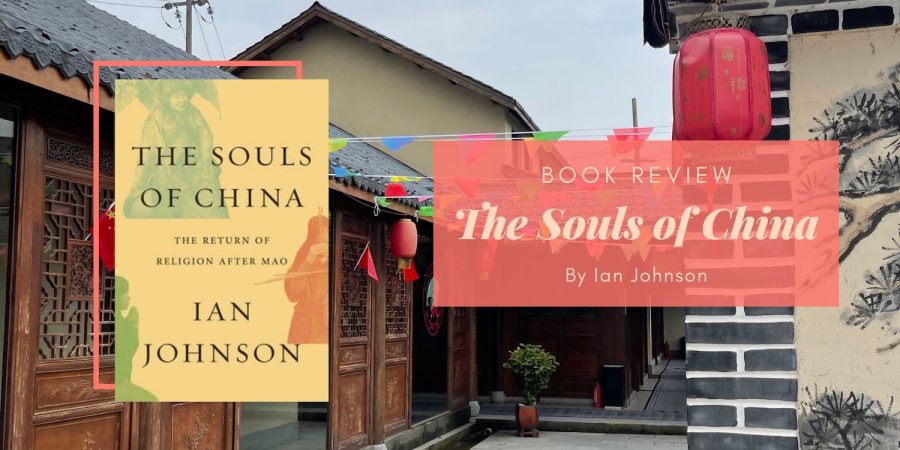After reading River Town, I decided to move on to another book about China – this one about the “return of religion after Mao” (according to the book’s subtitle). One thing I noticed in River Town was that while people didn’t like to criticise Mao Zedong overtly, they were rather willing to admit that he made mistakes. The general consensus seemed to be that he was flawed but still a hero, and it was with that in mind that I read The Souls of China.
Covering the span of one year, The Souls of China looks at how the Han Chinese practice their religion. Johnson interacts with, and observes, Daoists, Buddhists, and Protestant Christians, and each section generally has at least one chapter on each religion. The general consensus seems to be: as soon as the government stopped cracking down on it, people found ways to practice their faith, be it what is seen as “traditional” – Daoism and Buddhism, or “foreign” (albeit, already localised but connected to the global world, as we see from a house Church’s presentation on the long history of Christianity in Chengdu) – Christianity. We also get to see a bit of how the government treats religion, and the way it’s mixed up with culture, though sadly Johnson didn’t manage to show us anything of the government-run Churches (which I think would be very interesting).
From what I understand, faith is intrinsic and until the cultural revolution, was an everyday part of life. While the Chinese may not take part in formal religion the way the West defines it, they do have their own beliefs and are eager to express them. What I found interesting was the way that Christianity tended to be associated with the push for human rights and progress, while Daoism and Buddhism were concerned more with the ability to continue on their traditions and were hence more readily embraced and even co-opted by the ruling elite. It does seem like while the urge to practice faith is very common, how and why and the response to this urge can differ quite widely in China.
There was also one small point that caught my eye. I’ve often heard it said that the bystander effect is very strong in China because no one wants to be help responsible for what happens. But Mr Li, one of the daoists followed in the book, pointed to another cause: The Cultural Revolution. The book says:
“Old Mr. Li added something else: he said that this is when people stopped respecting each other. Respect for elders, respect for authority, even common decency: the Cultural Revolution was when it ended. When people were beaten, it was forbidden to help them.”
Which is honestly rather tragic, and I wonder if the rediscovery of faith will help to heal the wounds the cultural revolution created. But I have my doubts – it seems that as urbanisation and progress grows, people want the simplified version of the real thing. One challenge the Li family faces is that city dwellers haggle over prices or ask for inferior versions of music because they are “good enough”. Coupled with the fact that they have to simplify their repertoire and divorce it from its context to bring it overseas and have to follow certain rules to get government grants and it seems like many traditions risk becoming fossils.
Overall, I found this to be a fascinating book. It was published seven years ago, so I’m sure a lot has changed since then and I hope to be able to read a follow-up on this soon. It would be interesting to see how COVID-19 and the lockdowns, the rise of Hanfu and also Han chauvinism, as well as subsequent political developments have affected Daoist groups, Buddhist associations, and the house Churches.

That quote about respect dying is so sad, and yet makes so much sense
It really made sense because I’ve heard stories about how awful the bystander effect in China is (was?)
The role of Cultural Revolution in the loss of respect is indeed quite interesting. I do think that we’re in a time and age where people want things faster and simpler, with the illusion of choice as well.
Yes, instant gratification seems to be a worldwide trend. Though I wonder how things will move if people start to find that consumerism doesn’t answer all their questions.